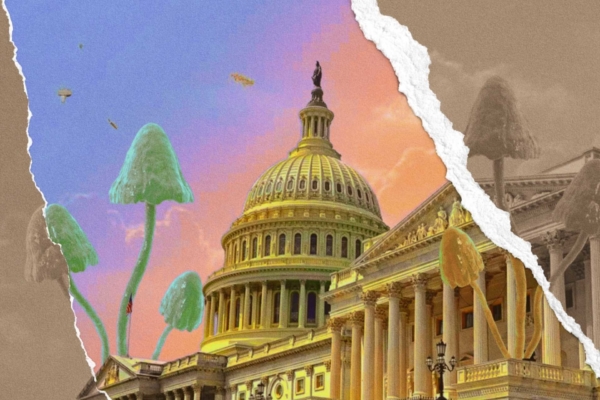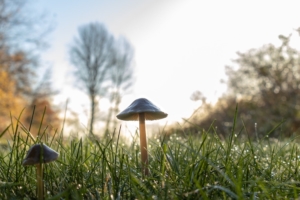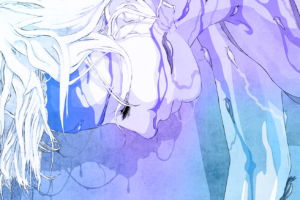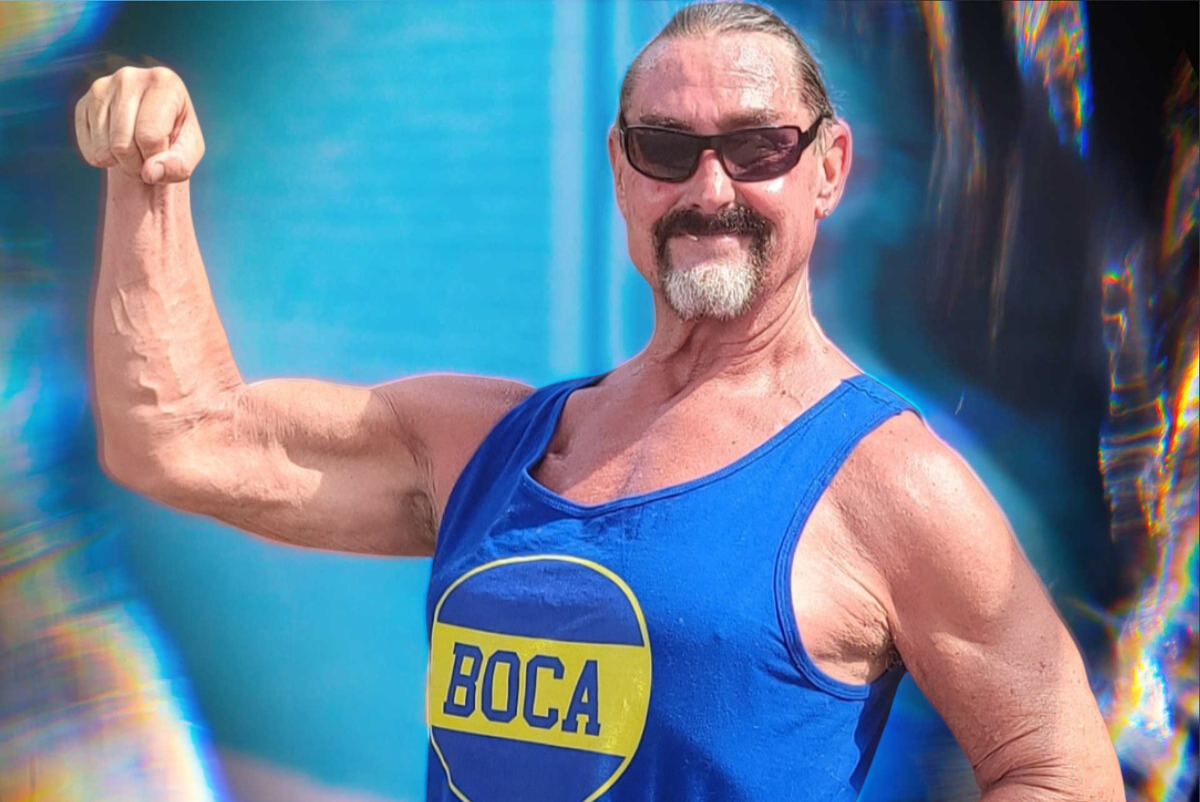
Hailing from Dallas, Texas, Russel Langhammer has transformed into a relentless plant medicine activist, driven by the life-altering impact of cannabis and psilocybin in his battle against opioid addiction, traumatic brain injury, end-of-life diagnosis, and PTSD. Defying the grim prognosis bestowed upon him by doctors, who declared him practically disabled and then deceased, these natural substances pulled him from the depths of despair and set him back on his feet.
In a fateful turn of events, during the 2000s, Langhammer encountered a life-altering incident at the Dallas Airport amidst an icy storm while working for American Airlines, which resulted in a severe back injury and traumatic brain injury. This traumatic event marked the beginning of his journey into the grips of opioid addiction.
His journey into the depths of addiction began when his doctors prescribed him a series of potent opiates and benzodiazepines to manage the pain. The medical professionals had told him that he would never be able to walk properly again. OxyContin (oxycodone), Dilaudid (hydromorphone), Valium (diazepam), and the ever-present hydrocodone danced mercilessly within his veins for years. Reflecting on those turbulent times, Langhammer grimly recalls, “With hydrocodone, I felt like Superman, even at a light dosage.” Yet, it was OxyContin that ensnared him in its insidious grip.
The repercussions of his addiction reverberated catastrophically, shattering not only his own well-being but also the delicate fabric of his family. Grandchildren shied away, retreating from the once vibrant figure before them, while his wife had also decided to leave him to fight his addiction battle alone.
It took his employer a staggering eight years to finally discern the true extent of Langhammer’s addiction. “They allowed me to push airplanes, and I had up to 72 employees working under me. I had my own six-man crew, but I was also coordinating international zones. I was translating and working; people’s lives were in my hands. The Food and Drug Administration and the DEA allowed me to take class two narcotics every day. But they wouldn’t allow me to use cannabis or mushrooms, even though we all know they don’t hurt you or kill you. So that’s why I became an advocate, man, and that’s why I started fighting. It’s because I got a new chance.”
The pain, he attests, was simply unbearable. “I lost my family and my job due to my addiction,” he confesses, the weight of those words underscoring the magnitude of his losses. “Now, I can function normally because of the psilocybin and the cannabis though I’m still in pain”, he continued.
In the face of such adversity, Russell emerges as a testament to the power of plant medicine and the tenacity of the human spirit. With his harrowing journey as the impetus, he champions the transformative potential of cannabis and psilocybin, driven by a profound desire to share with others that there is a natural way to escape the clutches of addiction.
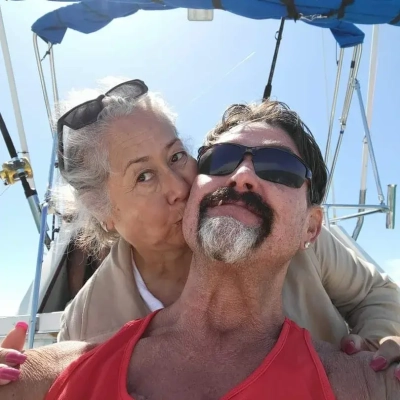
Russell used cannabis to aid him in his recovery from opioid addiction and to help alleviate his back pain. He gradually reduced his prescription drug intake by taking both THC and CBD concentrates.
However, it wasn’t a fast transition nor did his decision to taper off his prescriptions come easily. When Donald Trump signed an executive order banning the prescription of benzodiazepines and opioids together, Langhammer began experiencing withdrawal symptoms.
“It was excruciating. I sought medical help and was prescribed something to help me sleep, but it ended up putting me in a nine-day coma. When I woke up, I realized I had been off opioids for nine days and had tapered down to three milligrams of benzos.”
It took Russell six months to reduce his dose from 40 milligrams to 3 milligrams. At that point, he made the decision to never go back to his prescription medication. He turned to cannabis and joined an advocacy group called NORML where he discovered the benefits of using dabs.
“With the support of my doctors and the combination of whole-plant medicine and mindfulness techniques, I successfully got off opioids and benzodiazepines. Today, I am a testament to the positive effects of both cannabis and whole-plant medicine for various ailments,” says Langhammer.
Yet, fate had further tribulations in store for him, leading to his discovery of microdosing psilocybin.
Langhammer, who used to be a professional football player, bodybuilder and powerlifter, had physical scars from years of taking steroids. Chewing tobacco, which appears to be a common practice in Texas, had also become a harmful habit. Eventually, he was confronted with a staggering diagnosis of mouth cancer, propelling him into the throes of chemotherapy and a litany of heart complications. Presently reliant on his fourth pacemaker, the expanse of his struggles is painfully evident.
In 2019 alone, he found himself in the confines of a hospital bed on no fewer than 25 occasions, teetering on the precipice of death as his heart failed. “I died right here on my floor, and my pacemaker brought me back,” Russell recounts.
Langhammer confronted a stark prognosis, with medical professionals informing him that his time on Earth was waning. A priest had come to visit him to read him his last rights and give him anointment oil. However, Russell refused to accept death as his faith so he told his doctors and his priest, “The only oil I’m interested in is ‘cannabis’ oil.”
This is when one of Russell’s friends suggested exploring microdosing psilocybin mushrooms as an option to accept his new reality. Having nothing to lose, Russell followed up on his friend’s suggestion.
“I started microdosing in January 2020, and four months later, I was in Germany. I went to Budapest, I went to Austria, and when my ‘new’ wife and I returned home, everyone was like, ‘What have you been up to?’ I said, ‘I’m living; I’m going to live.'”
Microdosing brought a newfound sense of purpose and vitality back into Russell’s life. With the help of psilocybin, he regained his will to live and explore new possibilities. “I found the motivation and energy to start working out again, despite the challenges posed by my pacemaker”, Langhammer said. “Before I started microdosing, my heart was at its worst. My heart function was at 9%. Now, with the use of cannabis and psilocybin, it’s at almost 40%. That’s a miracle.”
Russell also explained that due to his fall at the Dallas airport, he was experiencing the lasting effects of a traumatic brain injury (TBI). Problems with concentration, memory loss, and irregular sleep patterns plagued him, making it difficult to navigate everyday life. However, after implementing a microdosing routine, Langhammer claims that these symptoms have significantly diminished.
In addition to the array of benefits experienced by Russell through microdosing, there is another significant aspect to his healing journey. He was also battling with PTSD caused by the accumulation of traumatic events he had endured throughout his life. According to Langhammer, microdosing allowed him to navigate the intricate layers of his psychological trauma, ultimately facilitating his healing and offering a renewed sense of well-being.
Russell is now 60 years old, remarried, and has a wonderful relationship with his wife and his grandchildren.
“This medicine has helped me not only get back up but to start living again”, he told Psychedelic Spotlight.
Ever since experiencing the transformative effects of cannabis and psilocybin, Russell has become an unwavering champion of plant medicine. He passionately shares his personal journey on his YouTube channel and how it has profoundly changed his life. Russell’s compelling story caught the attention of a producer who recognized its power and potential impact. As a result, efforts are underway to collaborate with Netflix on creating a documentary that chronicles Russell’s remarkable odyssey.
The documentary aims to capture the essence of Russell’s journey, showcasing his transformative experiences with cannabis and psilocybin. Filming locations are set to include the enchanting landscapes of Oaxaca, Mexico, the captivating vistas of Argentina and Germany. These diverse settings will serve as a backdrop for Russell’s story, highlighting the global reach and universal significance of his life-changing experiences.
Russel Langhammer stands as a testament to the resilience of the human spirit and the transformative power of plant medicine. Having traversed the depths of addiction and navigated the treacherous waters of life-threatening illness, he emerges as a beacon of hope, a living testament to the profound impact that these natural substances can have on one’s journey to healing and liberation.
